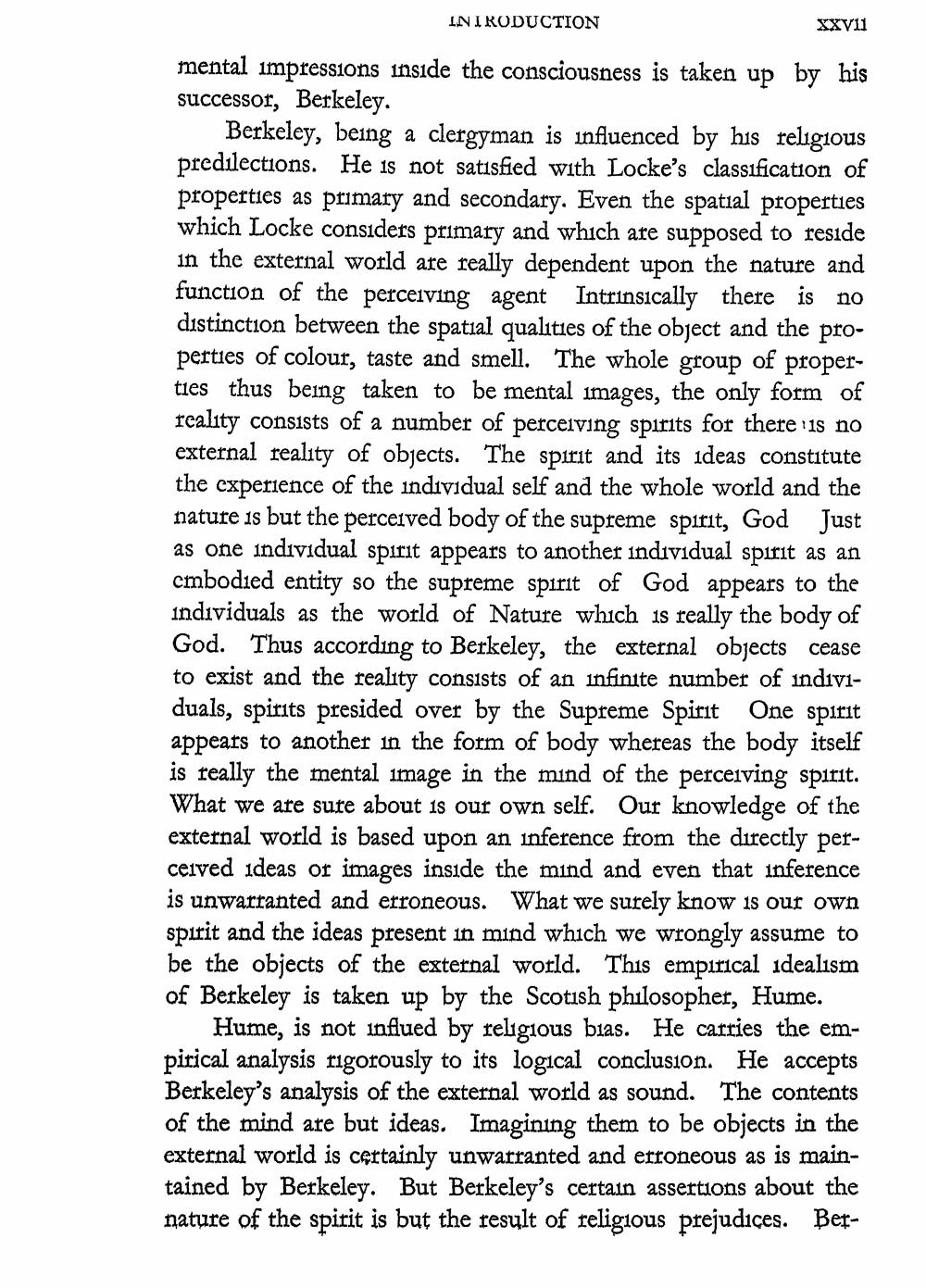________________
INI RODUCTION
XXVII
mental impressions inside the consciousness is taken up by his successor, Berkeley.
Berkeley, being a clergyman is influenced by his religious predilections. He is not satisfied with Locke's classification of properties as primary and secondary. Even the spatial properties which Locke considers primary and which are supposed to reside in the external world are really dependent upon the nature and function of the perceiving agent Intrinsically there is no distinction between the spatial qualities of the object and the properties of colour, taste and smell. The whole group of properties thus being taken to be mental images, the only form of reality consists of a number of perceiving spirits for there is no external reality of objects. The spirit and its ideas constitute the experience of the individual self and the whole world and the nature is but the perceived body of the supreme spirit, God Just as one individual spirit appears to another individual spirit as an embodied entity so the supreme spirit of God appears to the individuals as the world of Nature which is really the body of God. Thus according to Berkeley, the external objects cease to exist and the reality consists of an infinite number of individuals, spirits presided over by the Supreme Spirit One spirit appears to another in the form of body whereas the body itself is really the mental image in the mind of the perceiving spirit. What we are sure about is our own self. Our knowledge of the external world is based upon an inference from the directly perceived ideas or images inside the mind and even that inference is unwarranted and erroneous. What we surely know is our own spirit and the ideas present in mind which we wrongly assume to be the objects of the external world. This empirical idealism of Berkeley is taken up by the Scotish philosopher, Hume.
Hume, is not influed by religious bias. He carries the empirical analysis rigorously to its logical conclusion. He accepts Berkeley's analysis of the external world as sound. The contents of the mind are but ideas. Imagining them to be objects in the external world is certainly unwarranted and erroneous as is maintained by Berkeley. But Berkeley's certain assertions about the nature of the spirit is but the result of religious prejudices. Ber




